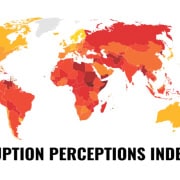|
Getting your Trinity Audio player ready...
|
By Ubong Udoeyo
First published on the Global Anticorruption Blog
Although the fight against corruption has traditionally focused on corruption in government, the anti-corruption community has started to pay more attention to corruption in other spheres. One particularly prominent concern is corruption in sports. This topic includes not only corruption in the major sports associations (think FIFA and the International Olympic Committee), but also the corrupt manipulation of individual sporting events in order to win bets (whether legal or illegal).
Such corrupt manipulation includes match-fixing (where corrupt actors fraudulently influence the outcome of a game); spot-fixing (where wrongdoers seek to influence events within the game that do not necessarily have a significant effect on the final outcome, such as the number of minutes an athlete plays or timing the first throw-in or corner in a soccer game); and point-shaving (where perpetrators seek to hold down the margin of victory in order to avoid covering a published point spread).
Different jurisdictions approach this sort of sports corruption differently. Many countries in Europe have enacted blanket laws criminalising match-fixing in order to uphold the integrity of sports. The US, by contrast, takes a narrower approach: the relevant criminal laws targeting sports corruption in the US – both the Federal Sports Bribery Act (FSBA) and comparable laws at the state level – focus solely on bribery. Furthermore, the FSBA has historically been used to prosecute individuals involved in paying bribes or inducing others to collect bribes, but not the people (usually athletes, coaches, or officials) who receive the bribes. Although a great deal of corruption in sports involves the payment of bribes, and would therefore be covered by these laws, some types of sports corruption are unilateral: An athlete or sports official may place bets on sporting events and subsequently undertake behaviour to win those bets. For this reason, some scholars have argued that the US should close this loophole by criminalising such unilateral conduct as well.
I disagree. To be sure, unilateral sports corruption is unethical, and criminalising it would help to prevent athletes, referees, and coaches from engaging in corrupt acts that jeopardise the integrity of sports. But the benefits of criminalising this form of misconduct are minimal and are greatly outweighed by the corresponding costs.
- First, while unilateral sports corruption is a problem, it is a relatively low magnitude offence. Sports leagues and sports betting are forms of entertainment, and while corruptly influencing sporting events is not harmless, the social harm is far less serious than the social harm associated with other forms of corruption, for example in health care, education, or securities markets. My point is not that unethical unilateral conduct should be excused or ignored, but rather that the heavy artillery of the criminal law – and the substantial investment of public resources in policing this sort of misconduct – are incommensurate with the relatively low social harm at issue. Using taxpayer dollars to monitor, investigate, prosecute, and incarcerate individuals accused of corrupt unilateral sports betting-related conduct would require many taxpayers to fund the regulation of an industry that has little or no relevance to their livelihood.
- Second, using the blunt force of the criminal law to tackle a relatively minor problem can result in non-trivial harms. For instance, criminalising unilateral sports corruption may (at least in the US) have a disproportionately negative effect on African American athletes, who make up the majority in most professional and collegiate sports. It is already the case that African Americans are disproportionately likely to be wrongly accused and convicted of criminal wrongdoing, so it is not difficult to imagine a scenario where criminalising unilateral sports corruption would lead to African American athletes not only being disproportionately scrutinised, but often falsely accused and convicted of engaging in corrupt unilateral conduct.
- Third, criminalisation is unnecessary to address the problem of unilateral sports corruption by individual athletes, coaches, and referees, because the sports leagues can adequately handle this problem themselves. The leagues can monitor and investigate potential misconduct, and can impose penalties on wrongdoers, including suspension or expulsion from the league. These are not criminal penalties, but they could result in substantial financial and reputational losses to those punished, and as a result such league-imposed sanctions have a powerful deterrent effect.
Now, my argument may seem to imply that current criminal laws against sports corruption involving bribery also go too far. But that is not the case. For one thing, the social harm associated with bribery-related sports corruption may be substantially larger, because of the involvement of organised crime groups in large scale sports betting-related corruption. For another, concerns about racial disparities in the burden of criminal laws apply with substantially less force in the context of those who pay or facilitate bribes.
And of course, the sports leagues themselves lack the ability to punish the outside parties who pay bribes to athletes, coaches, or officials. For these reasons, the current US approach strikes the right balance. Criminalisation of those who pay or arrange bribes to influence sporting events is appropriate, but unilateral corruption by athletes, coaches, or officials should be addressed through means other than the criminal law.
Ubong Udoeyo is a student at Harvard Law School. Originally from Nigeria, he was previously a biomedical engineering manager, focused on implementing strategies that improved the usability of medical devices within health systems.








